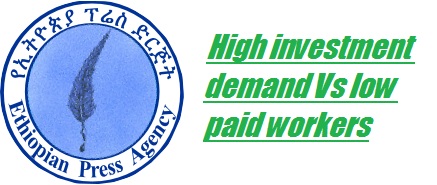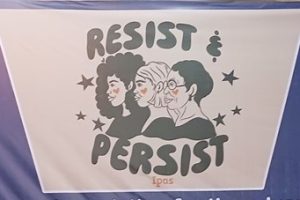
With multiple industrial parks already inaugurated and the curiosity remains high for more ones to follow, Ethiopia needs to explore better ways for its lowest paid workers of the parks to offer them with decent lives, it is disclosed.
So far, industrial parks collectively have created around 80, 000 jobs and are expected to absorb more job seekers. Yet workers’ treatments have been reported to be less fair. And as export struggles, Ethiopia’s ambition to have foreign investment boosted in the country remains high. With little progress over the years, the country continues to throw its full weight behind boosting the manufacturing sector such the garment and apparel sub-sector.
The country’s incentive packages together with the growing infrastructural facilities- industrial parks included-have also continued to lure some of the world’s biggest companies to invest or relocate their investment to the country. This brings ample job opportunities for the country’s young yet largely unemployed population.
World’s top fashion labels such as H&M, Tommy Hilfiger, JC Penney and Calvin Klein are some of the apparel industries doing business in the country. More recently, the famous car manufacturer Volkswagen and Isuzu also have already decided to open assembly factories here.
Despite the massive jobs being created by investors, concerns remain high on the condition of workers who help produce the international brands. Form lowest wage to poor occupational safety, workers are reported to be in bad situations.
A report by the New York Stern Center for Business and Human Rights shows that despite the growth in the garment market, Ethiopian garment factory workers are, on average, the lowest paid in the world.
The country does not have a private sector minimum wage, and Ethiopian workers are paid 26 USD per month while their counterparts in South Africa and Kenya earn higher wages with 244 USD and 207 USD per month respectively.
The concern is leading to national consultation among stakeholders the investment commission, Ethiopian labor and Social Affairs Ministry and Confederation of Ethiopian Trade Union (CETU). A new labor law is also on pipeline expected to provide legal provision for setting minimum workers’ wage and improving work decency.
Recently, a workshop was conducted on labor management in industrial parks. Comparative labor advantage is the reason why many textile and apparel companies are moving to the country. That is the nature of the industry. Textile and garment companies do relocate their investments or move from countries that have higher wages to countries where labor is abundantly available. That is one of the advantages investors get in Ethiopia, says Ethiopian Investment Commission Commissioner, EIC, Abebe Abebayehu.
However, Abebe admits that workers in the industrial parks do earn low wage. “It is vivid that workers do earn low income that it even falls short of meeting their monthly expenses.” “While ensuring that the industry creates job opportunities, we need to come up with decent standard of living for our workers.”
The existing labor law should be reformed. In this regard, the Council of Ministers has referred a draft labor law to the parliament for further scrutiny and approval. The new law will help ensure the benefits of the employees and set minimum wage. At the same time, the quality of workers and their competence should be improved as investors do raise some concerns in this regard, Abebe adds.
CETU knows that workers earn low incomes and face different challenges. But it requires further assessment to identify them clearly and prescribe the right solutions. Workers in industrial zones and parks were banned to get organized, says Measho Berihu Foreign and public Relations Head at Confederation of Ethiopian Trade Union.
Most of the problems workers face could have been prevented or redressed, had they been organized. The first rung in the fight towards a decent job is to create strong labor associations that can stand for the right of workers. It is imperative that workers are organized and their concerns are redressed.
“CETU has set up committee to begin the organizations of workers in industrial zones. Hopefully, we will begin in Bole Lemmi and Hawassa industrial parks shortly. We have reached agreement with investors that workers should be organized. The problems are yet to be redressed.”
A road map has been prepared to oversee the issue of minimum wage and other challenges facing the workers. The figure is yet to be determined and it requires further work before decisions are made. “As a country we need to pull more foreign direct investment to the country so that they create massive job opportunities for unemployed people.” But we need to make sure that the jobs are decent and the benefits of employees are fair.
Minister of Labor and Social Affairs, Dr. Ergoge Tesfaye, for her part, states that a study conducted by the Ministry shows that there are several challenges which workers are facing. Loopholes are also observed with regard to workers occupational safety.
Hence, a draft of national roadmap has been prepared to look into the overall issue including minimum wage. Intense discussions and works remain ahead to bring tangible changes and tackle the concerns both workers and employers raise.
The Ethiopian Herald, May 31/2019
BY DESTA GEBREHIWOT





